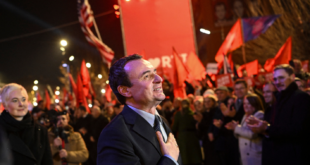Serbian parliament has adopted its budget for this 2011 targeting a deficit of 4.1% of gross domestic product, in line with the country’s €3 billion deal with the International Monetary Fund (IMF).
The budget, approved by a slim majority of deputies, foresees revenues at nearly €7 billion and spending at some €6 billion, including the rise in wages in the public sector and pensions for January, April and October.
Opposition MPs, who voted against the proposed budget, criticized the method of spending state money and demanded a redistribution of assets, in order for a larger amount to be directed to agriculture.
The opposition also criticized a proposition for an increase of VAT on tourist services, computers, etc. but during the debate, the ruling coalition proposed amendments withdrawing such a proposition, which was adopted, so a rate of 8% remains.
The government was also forced to change the law on budget system in order to change the way of calculating wages and pensions, as the budget could not handle the payments. With the changed provisions, the rise of wages in January will, instead of 6%, be less than 2%.
The budget also envisages growth of 3%, in line with the IMF’s forecast, and inflation in line with the central bank’s target of 4.5%.
Government officials stressed that part of the 2011 deficit will be financed with World Bank and European Commission loans. Another portion of the deficit will be covered by privatization revenues, mainly from the sale of a 51% stake in Telekom Serbia operator, which is set to be privatized in late February.
In order to fill up the budget, the government has raised taxes, with prices for heating and electricity also expected to rise. Therefore, the cost of living is expected to be higher in 2011, alongside an increase in wages that have been frozen for almost two years.
The economy will be additionally endangered following an announcement by private employers of further layoffs and low tax collection by the government. At the same time, some studies predict that a decrease in black market activities could boost the country’s economy by 30%.
Source: isaintel.com
 Eurasia Press & News
Eurasia Press & News



